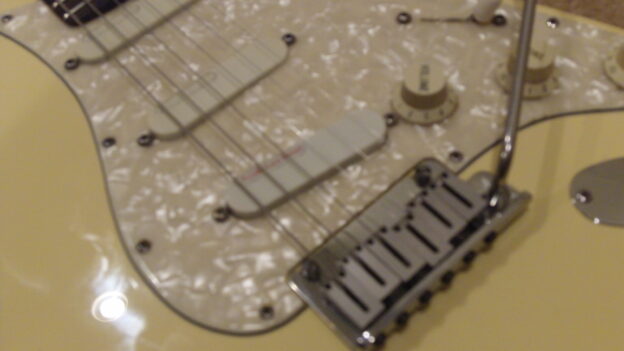By Chad Crawford PMI Guitar Instructor
Retention of knowledge and technique is high on the list of challenges to aspiring guitarists. As with any long term complex undertaking, we can take shorter or longer paths to the same end. While common sense dictates that we take the shorter path, there are a number of ways to step off the shortest path without realizing it. For maximum results in the shortest possible time we need to be aware of these potential pitfalls and make every effort to avoid them.
Repetition is the obvious bedrock of retention, but failure to incorporate other available retention strategies will result in a predictable consequence: review. While review is an essential and unavoidable component of learning, excessive review is counterproductive, frustrating for students and teachers, and inherently robs aspiring musicians of invaluable time that could rather be invested in growth. So our goal should be to maximize every available retention opportunity in each lesson and practice session.
Beyond the obvious need for repetition, retention is a function of a combination of predictable and controllable factors, such that the aspiring guitarist can choose (or not!) to greatly enhance progress rates by consistently implementing a few simple but powerful strategies. Though these may seem like common sense, I routinely observe generally intelligent, talented, and ambitious students slipping in these elements of retention, so do not assume that you can’t benefit from a self-check in these details. The very core of the problem is that these things operate below our conscious view if we do not intentionally choose to give them attention.
1. Paying attention to instructions – it is very easy to allow the mind to wander off in the middle of an explanation, then practice something wrong all week. In some cases I have seen students so excited about learning something new that in the middle of my demonstration they take off trying to figure out what I am playing by ear rather than concentrating on the demo, which of course defeats the purpose of the demo. While I commend the passion about learning new things, this is an obvious example of not paying attention to the instructions, and the results are predictable – we have to go over it again. Whether your instruction method be a book, video, or personal one-on-one lessons, be assured that you will get better results by controlling the impulse to take off playing as soon as you have the first hint of where to put your fingers, and instead getting your mind around the complete explanation before attempting to apply it.
2. Following the instructions – assuming you have paid attention to the instructions and thus have a sufficient understanding of what to do, the next step is to apply the instructions. Certain details of optimum physical technique are often at conflict with our natural inclination toward doing what feels easiest for us at the moment. While few would argue whether or not following the instructions is important, some aspects of our motor skills operate at a subconscious level. While attempting scale exercises for instance, we must manage a number of things simultaneously such as note location, timing, coordination of the picking and fretting hands, and management of excess muscular tension. It is very easy in this kind of multi-tasking situation to allow the fingers to revert to auto-pilot while we monitor other details, and then we slip into repeating poor physical technique and allow it to become a self-defeating habit. It is very hard to break ingrained poor physical technique habits. Do not allow this to happen. Follow the instructions!
3. Maintaining focus – Repetition is a potentially powerful aid to retention, but repetition without deliberate focus on details can actually cultivate less than optimal mental and physical habits and thus hinder progress. It is important to understand that deliberate focus is not the default mode of the human mind. Our tendency is to allow the attention to wander off, and thus sustained focus on one thing or group of things requires some conscious effort. Additionally, there may be no feeling of increased progress while making the extra effort to stay focused, and so there may be no immediate sense of reward in exchange for the extra effort. However, both science and common experience reveal that all types of memory, including muscle memory, achieve their peak power in response to sustained focused attention. So for maximum retention choose to stay focused during your practice!
4. Context development – Memory responds well to organization. It is therefore important to recognize at the outset of our musical endeavors, or as soon thereafter as possible, that all of music is one total phenomenon rather than a host of tiny parts to remember separately. For example, our big four pitch relationship tools are intervals, scales, chords, and arpeggios. While we study these individually for clarity, they are in fact all a defined subset of the chromatic scale. If we recognize a major chord or arpeggio as a subset of intervals from the major scale then it is easier to see the overlap between the chord tones and potential resolving notes from the major scale, major pentatonic scale, or a major arpeggio. If additionally we can look at the fretboard and simultaneously visualize a major scale, a corresponding major chord and inversions, and the major arpeggio, all superimposed over one another, then it is relatively easy to move between playing a chord and applying a fill or solo from the major scale or arpeggio. Likewise, if we can perceive a given rhythm as a subset of divisions of the main beat then it is relatively easy to feel out the main beat and then fill in the divisions. So it is very helpful to retention to always be plugging bits of new information into the scheme of the overall context.
5. Choose the high road – with life in general we often refer to taking the high road as a colloquialism for doing the right thing. I am appropriating this idea for application to the study of music, and I mean it in this way: when you are practicing guitar and you run into a choice between doing the less comfortable but more beneficial thing or the more comfortable thing, do the less comfortable thing. For example, when practicing phrasing with a backing track it is very easy to just settle into playing positions or licks you are already comfortable with rather than experimenting with unknown territory. Likewise, some things on your practice schedule will be more interesting or enjoyable than other things, and it is very tempting in the privacy of your practice space to take the easy low road by minimizing or altogether avoiding the more challenging parts of your practice routine. This is how people stop progressing and get into ruts. Don’t let it happen! When you have something new to work on and it is harder to do relative to just doing further repetitions of things you already know, take the high road by investing yourself in the new material. Half effort will not yield half results. It will yield no results, and you will have to keep going back and reviewing this material until you finally get sick of review and invest the effort in obtaining the results you could have had earlier.
You don’t have time to waste on this cycle of stagnation. Save yourself the trouble and frustration, and invest the necessary effort up front. You will proceed must faster through practicing and will get on sooner with actually playing!
Copyright © 2005 Palmetto Music Institute. All Rights Reserved.


